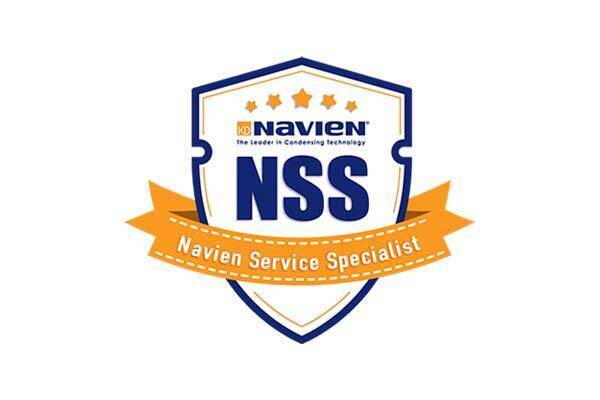The Merriam-Webster Dictionary defines a plumber as “one who installs, repairs, and maintains piping, fittings, and fixtures involved with the distribution and use of water throughout a building.” It sounds like an important job, but the description of it is vague.
So many steps are involved in becoming a plumber, from the various levels of plumbing apprenticeships, written tests, the minimum number of hours working under another master plumber, and simply gaining experience, which makes becoming—and being—a plumber an arduous task.
Why Would Anyone Want to Be a Plumber?
“If I had my life to live over again, I’d be a plumber.” -Albert Einstein
It looks like a dirty, thankless profession that, on its worst days, involves wading around in puddles of muddy wastewater. On its best days, it involves clearing out the overflowing toilets and bathtubs of complete strangers. It is not a career for those with a healthy fear of germs or those unwilling to get their hands dirty. Or bloody. Or both.
It’s almost entirely a job that relies on the physicality of those doing it, causing many plumbing apprentices to drop out of the industry after only months or even weeks of employment. The profession’s rewards soon reveal themselves for those who make it past “plumber’s basic training” and start accumulating licenses and certifications. Within just a few years, a dedicated plumber can find themselves making a pretty good living.
So, What Does a Plumber Do?
“The plumber is an adventurer who traces leaky pipes to their source.” -Arthur Baer
Plumbers are vital in maintaining our homes’ and buildings’ functionality and safety. Their day-to-day job revolves around installing, repairing, and maintaining plumbing systems, which include:
- water supply
- drainage
- heating
- sanitation
- natural gas systems
Plumbers are responsible for ensuring that water flows reliably into and out of our properties, allowing access to clean water for drinking, bathing, and household tasks while efficiently disposing of wastewater.
Plumbers carry out a diverse range of tasks regularly to ensure the proper functioning of plumbing systems. They install, repair, and maintain water supply lines, drainage systems, and fixtures such as sinks, toilets, and faucets. Plumbers also inspect plumbing systems to identify issues, detect leaks, and resolve pipe blockages or clogs.
They connect appliances like water heaters and dishwashers to the plumbing network and ensure compliance with building codes and safety regulations. Additionally, plumbers work with various materials, tools, and equipment, such as pipe wrenches, soldering torches, and pipe cutters, to complete their tasks efficiently and effectively.
Plumbers also play a critical role in maintaining the health and safety of our communities by ensuring that sanitation systems function correctly and preventing contamination of our water supply.
Overall, a plumber’s work is essential for keeping our homes running smoothly and our environments safe and healthy.
Who Can Legally Perform Plumbing Work in Texas?
In Texas, anyone who performs plumbing work on any residential or commercial building must hold a current, state-issued, valid plumber’s license. The license helps ensure expertise and professionalism when plumbing technicians work in or around your home.
In addition to the licenses of the individual plumbing technicians, the company they work for must also employ someone with a master plumber’s license or MPL. Usually, this license is held by the owner of a plumbing company or its principal operating officer. It requires the licensee to have completed 8,000 hours of certifiable on-the-job experience and passed multiple state examinations.
What are the Requirements to Become a Plumber?
For those interested in pursuing a career in plumbing, whether commercial or residential, the first requirements are:
- You must be at least 16 years old, and
- You must be a citizen or national of the United States or an alien or non-immigrant eligible for licensure by the State of Texas.
If you meet both criteria, you must complete a Plumber’s Apprentice Registration application and submit a $15 fee to the Texas State Board of Plumbing Examiners (TSBPE). Applications can be filled out online at
https://vo.licensing.hpc.texas.gov/datamart/login.do after setting up an account with the
Online Licensing System.
The following numbers come from various websites, like Indeed.com and Salary.com based on searches for Plumber Salaries in Texas.
What are the Steps on the Road to Becoming a Plumber?
In Texas, the path to becoming a licensed plumber involves a well-structured progression through different stages of training and experience.
To begin, aspiring plumbers typically start as apprentices, receiving hands-on training under the supervision of licensed master plumbers or journeymen. During this apprenticeship, they learn fundamental plumbing skills and safety regulations and gain practical experience.
After completing a state-approved apprenticeship program, which typically lasts for four to five years, individuals can then pursue the Tradesman Plumber License, which allows them to work on plumbing projects independently under the guidance of a licensed master plumber.
Following further work experience, typically around two years, they become eligible to take the journeyman plumber exam, granting them more autonomy in their plumbing work.
Finally, after accumulating additional experience and passing the Master Plumber Exam, individuals can achieve the coveted Master Plumber License, which allows them to perform plumbing work independently and oversee other plumbing professionals legally.
In Texas, holding a valid license is essential for anyone wishing to practice plumbing legally and ensures that the work is conducted to the highest safety and quality standards.
Step 1 – Plumber’s Apprentice
While there is no previous experience requirement to apply to be a plumber’s apprentice, each apprentice must first register with the state and then find an employer willing to sponsor their training. Plumber’s apprentices cannot perform unsupervised work, and the company’s master plumber must directly supervise their work.
- What a Plumber’s Apprentice Does: Once registered as a plumber’s apprentice with Texas, they can look forward to digging ditches. Lots and lots of ditches. The apprentice is being paid to learn their craft, so their primary function is to observe the more experienced techs and learn by watching. Plumber’s apprentices can perform repairs and installations, but only under direct supervision by a journeyman or master plumber. And they can also dig trenches.
Step 2 – Tradesman Plumber
This is the first step toward becoming a plumber that requires licensing. The applicant must have at least two years of documented experience in the plumbing industry. Tradesman plumbers must complete 24 hours of classroom training and pass a written exam to receive their license.
- What a Tradesman Plumber Does: Construction, installation, repair, and service of plumbing for one- and two-family residences only while under the supervision of a journeyman or master plumber. By this phase of their career, tradesman plumbers are expected to have an excellent working knowledge of most common plumbing procedures and are permitted to supervise apprentices.
Step 3 – Journeyman Plumber
The plumber can take the journeyman’s exam after completing 8,000 hours of plumbing experience and an additional 48 hours of classroom instruction. Most of the exam will be based on classroom material but will also include questions about general plumbing knowledge. Journeyman plumbers are expected to be familiar with residential and commercial plumbing systems and all aspects of gas line plumbing.
- What a Journeyman Plumber Does: Maintain, service, repair, install, and renovate all facets of residential plumbing systems in single and multi-family dwellings. Journeymen plumbers will often supervise work performed by tradespeople or apprentice plumbers on work sites.
Step 4 – Master Plumber
To qualify for a master plumber’s license, you must first acquire your journeyman’s license and hold it for four years in good standing. By completing a training program approved by the US Department of Labor, Office of Apprenticeship, a journeyman can become eligible to take the master plumber’s exam after holding that license for only one year.
- What a Master Plumber Does: Everything that falls under the umbrella of plumbing services, including all aspects of gas line plumbing repair and installation.
Not everyone who works in the plumbing industry is going to achieve master plumber status. Most licensed plumbers remain in the journeyman category unless they plan to own a plumbing company or become an existing business operator.
Why are Plumbing Licences So Important?
The importance of plumbers being licensed in Texas cannot be overstated, as it is a fundamental safeguard for the public’s well-being, property, and the integrity of plumbing systems. Like many other states, Texas requires plumbers to obtain and maintain a valid legal license to practice their trade. This licensing process involves rigorous training, examinations, and hands-on experience, ensuring that plumbers are knowledgeable and skilled in adhering to safety codes, regulations, and industry standards.
Licensed plumbers are well-versed in proper installation, maintenance, and repair techniques, which ultimately help prevent potentially hazardous situations, such as leaks, contamination of drinking water, and gas-related issues.
Furthermore, licensing provides consumers with confidence and assurance that the plumbing work performed in their homes or businesses meets the highest quality and safety standards.
Individual plumbers working for a plumbing company in Texas typically fall under the company’s master plumber’s license. This arrangement further enhances accountability and safety. The master plumber, who holds the highest level of licensing and experience, assumes overall responsibility for the work carried out by employees and apprentices under their employ. This ensures that every aspect of the plumbing job, from planning and execution to compliance with local building codes, is overseen by a highly qualified professional.
The company’s master plumber safeguards against subpar work and helps maintain the highest standards of safety and craftsmanship within the plumbing industry. The licensing framework in Texas not only upholds the competence and accountability of individual plumbers but also reinforces the collective commitment to the well-being and satisfaction of customers.
Are There Any Specializations in Residential Plumbing?
Several specialities and specializations within the field of residential plumbing can make a plumber more valuable and in demand. Some of these include:
Water Heater Specialist
Plumbers who specialize in water heaters, including installation, repair, and maintenance of various types, such as tankless, traditional, and heat pump water heaters, are highly sought after. With the increasing focus on energy efficiency, expertise in energy-efficient water heating solutions can be precious.
Kitchen and Bathroom Remodeling
Plumbers specializing in kitchen and bathroom remodeling projects possess the skills to install and upgrade plumbing fixtures, faucets, sinks, showers, and tubs. Their ability to create aesthetically pleasing and functional spaces can be a significant asset.
Pipe Relining and Trenchless Technology
Plumbers trained in pipe relining and trenchless technology can repair or replace damaged or deteriorating pipes without requiring extensive digging. This minimizes disruption to the homeowner’s property and can be a valuable skill in areas with older plumbing systems.
Backflow Prevention
Plumbers certified in backflow prevention can help protect potable water supplies by installing, testing, and maintaining backflow prevention devices. This specialization is often required for regulatory compliance.
Gas Line Installation and Repair
Plumbers licensed to work on gas lines can install and repair gas pipes and appliances, including gas water heaters and stoves. This specialization requires additional training and certification.
Smart Home Plumbing Systems
With the rise of smart home technology, plumbers who can integrate and troubleshoot smart plumbing systems, such as leak detection devices and water quality monitors, can offer added value to homeowners.
By specializing in one or more of these areas, residential plumbers can differentiate themselves in the market and provide valuable expertise to homeowners with specific plumbing needs. It’s essential to continually update skills and stay informed about industry trends and advancements to remain competitive and valuable in residential plumbing.
Texas Plumbing Company Categories
Independent of licensure requirements and specializations, most plumbing technicians fall under one of the following three categories:
Licensed Residential Plumber
If you own a home, you have most likely hired a licensed residential plumber to repair some aspect of your plumbing system. Licensed residential plumbers are highly trained and experienced with the plumbing issues in most single- and multi-family dwellings. Residential plumbing problems can differ from those of a commercial plumber and require specific knowledge to correct.
Licensed residential plumbers have been trained in new installations, repair, and maintenance of existing plumbing fixtures in your home. Some typical replacements and repairs include toilets, water heaters, garbage disposals, whole house re-pipes, and more. You should only hire a licensed plumber to perform any residential plumbing you may need.
Licensed Commercial Plumber
Proficient in working in large buildings such as multi-level offices, schools, hospitals, and malls, which require a licensed commercial plumber to repair and maintain their plumbing systems. They know, and most importantly, they have experience dealing with the unique concerns of a more complex plumbing system.
Commercial plumbers have more to deal with than residential plumbers based on the number of pipes, fittings, and fixtures for which they are responsible. Additionally, the range of sizes of plumbing pipes can be much more extensive and require heavy-duty equipment to install. Multi-level buildings create even more challenges in waste removal, and a licensed commercial plumber will be the most experienced in maintaining these types of sanitation systems.
Licensed Service and Repair Plumber
This category of plumbers specializes in only “service” or “repair” calls and does not have experience with larger plumbing tasks like installing water heaters or re-piping a house. These plumbers most commonly perform minor repairs such as float valve replacements to fix a running toilet or a faucet replacement to fix a drip.
Make sure you research the plumbing company you’re hiring to ensure they regularly perform the service you require. You do not want an unqualified service and repair plumber to perform any significant installation or repair of plumbing systems like your home’s heating, gas, or main sewer line. We recommend you only hire a licensed plumber who has experience with jobs like that.
How Much Does a Texas Plumber Make?
“Skilled plumbers aren’t cheap. Cheap plumbers aren’t skilled.” – the Internet.
Naturally, this is the most commonly asked question among potential plumbing technicians, so here is an amalgamation of data collected from several websites, including Salary.com and Indeed.com, based on searches for Plumber Salaries in Texas.
- Apprentice Plumber: 12.50 – 17.60/hr.
- Tradesman Plumber: 16.54 – 23.65/hr.
- Journeyman Plumber: 24.83 – 32.60/hr.
- Master Plumber: 46.65 – 54.72/hr.
What Type of Plumber Should You Hire?
When hiring a plumber in Houston, TX, it is imperative to prioritize individuals or companies that possess the proper licenses and credentials for the type of plumbing work you require. Houston, being a large and diverse city, presents a variety of plumbing needs, from routine repairs and maintenance to more specialized tasks like gas line installations or backflow prevention.
Therefore, the best type of plumber to hire is one who not only holds the necessary licenses but also has relevant experience in plumbing that aligns with your project.
For instance, if you need a plumber for a residential plumbing issue, look for professionals specializing in residential plumbing services and holding the appropriate licenses. Similarly, if you require commercial plumbing services, seek out plumbers with expertise in commercial systems and who comply with the regulations governing such projects.
By ensuring that your chosen plumber has the proper licenses and a track record of success in your specific area of need, you significantly increase the likelihood of receiving high-quality, safe, and reliable plumbing services tailored to your requirements. This ensures the job is done correctly and contributes to your plumbing system’s long-term functionality and safety.
What You Should Avoid When Searching for a Plumber
You DO NOT want to hire an unlicensed “Chuck in a Truck” instead of a plumber for any reason. Even if they can save you money, the customer has no legal recourse if an issue arises from the work they perform. Let’s say you hired them to do a simple faucet replacement, and they accidentally overtightened a fitting, creating a small leak in the pipe. You may not notice this leak immediately, but it could quickly become a bigger problem. At that point, you can only hope that the unlicensed plumber you hired will come out and fix the problem at their expense.
With a licensed plumber, you usually have some form of warranty that compels them to make it right. It is illegal for a “Chuck with a Truck” or other handymen to perform plumbing work in your home in Texas.
Nick’s is Houston’s Favorite Licensed and Experienced Plumbing Service Company!
Reviews don’t lie, and Nick’s Plumbing has well over 2,500 five-star reviews on Google, is a NextDoor Neighborhood Favorite, and has earned a well-earned positive word-of-mouth reputation during our 44 years in business.
When selecting a plumbing service provider in Houston, there are several compelling reasons why Nick’s Plumbing & Air Conditioning should be at the top of your list. At Nick’s, we prioritize safety, expertise, and professionalism, and it all starts with our commitment to licensing and rigorous background checks. Every technician on our team is licensed and undergoes comprehensive background checks to ensure your peace of mind. This level of scrutiny guarantees that you are inviting trustworthy and qualified professionals into your home.
Our dedication to excellence extends beyond licensing and background checks. Nick’s technicians receive ongoing training to stay current with industry standards and the latest advancements in plumbing technology. Our state-of-the-art training facility, equipped with a dedicated classroom and a warehouse training area, sets us apart. This allows our technicians to immerse themselves in hands-on learning, ensuring they are well-prepared to handle any plumbing challenge that comes their way.
Whether it’s a routine repair, a complex installation, or troubleshooting cutting-edge plumbing equipment, our technicians are up to the task of delivering top-tier service to our valued customers.
At Nick’s, we believe that informed customers make the best decisions for their homes, so we go the extra mile to ensure that our technicians are skilled and capable of educating you about your plumbing system. When you choose Nick’s Plumbing & Air Conditioning, you’re not just hiring a plumbing service; you’re investing in a team of licensed, experienced, and continuously trained experts dedicated to delivering the highest professionalism and safety standards. Your satisfaction and peace of mind are our top priorities, and we’re here to meet all your plumbing needs with skill, knowledge, and a commitment to excellence.
Call Nick’s For Any Plumbing Issue – Big or Small, Nick’s Handles Them All!
Nick’s Plumbing & Air Conditioning is the premier choice for Houston residents facing plumbing challenges, regardless of their magnitude. We understand that plumbing issues, whether minor nuisances or major emergencies, can disrupt your daily life and require immediate attention. That’s why our team of licensed technicians is always prepared to step in and deliver our renowned 5-star service right in the comfort of your home. Our commitment to excellence shines through every aspect of our work, from routine maintenance to complex repairs and installations.
No plumbing issue is too small or too large for Nick’s Plumbing & Air Conditioning. Our seasoned professionals have the expertise, experience, and state-of-the-art tools to tackle any problem with precision and efficiency. Whether it’s a minor leak, a clogged drain, a faulty water heater, or a comprehensive plumbing overhaul, we approach each task with the same dedication to providing top-tier service.
When you choose Nick’s, you’re not only choosing licensed technicians but also opting for peace of mind, reliability, and the assurance that your plumbing concerns will be resolved promptly and effectively, leaving your home in optimal working order.
Call us Today; We’re on the Way!


























